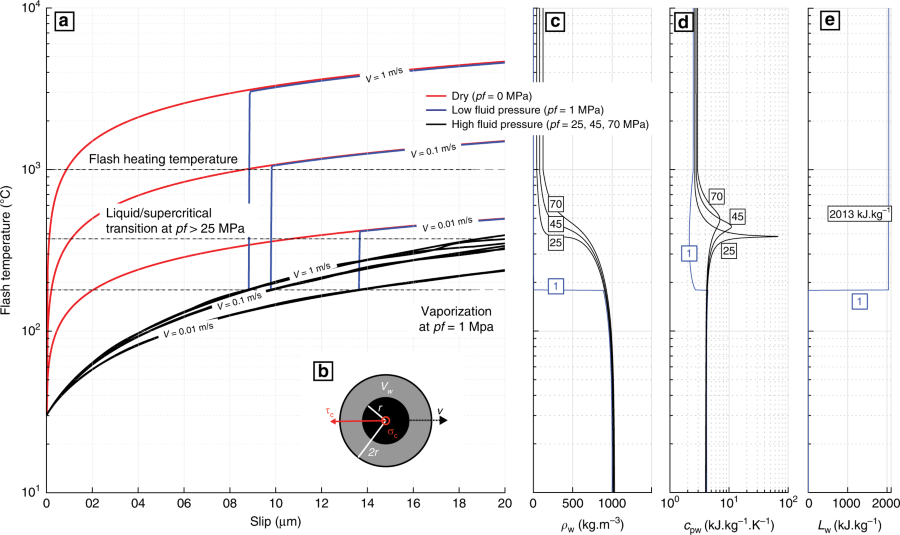 |
| Flash temperature calculation. Red curves correspond to dry conditions, blue to low fluid pressure (1 MPa) and black to high fluid pressures (25, 45 and 70 MPa). |
Around 100,000 earthquakes are recorded worldwide every year, but not all are naturally occurring. Some of the weaker ones are triggered by human activity underground – this is referred to as induced seismicity. Researchers from EPFL’s Laboratory of Experimental Rock Mechanics (LEMR) and the Ecole Normale Supérieure in Paris have just completed a study into the role of fluids in the propagation of induced earthquakes in an effort to decipher the underlying mechanisms. Their findings include the extremely counterintuitive discovery that highly pressurized water in the vicinity of an earthquake tends to limit – rather than increase – its intensity. These results were published today in Nature Communications.
Read More.........
M. Acosta et al. Dynamic weakening during earthquakes controlled by fluid thermodynamics, Nature Communications (2018). DOI: 10.1038/s41467-018-05603-9